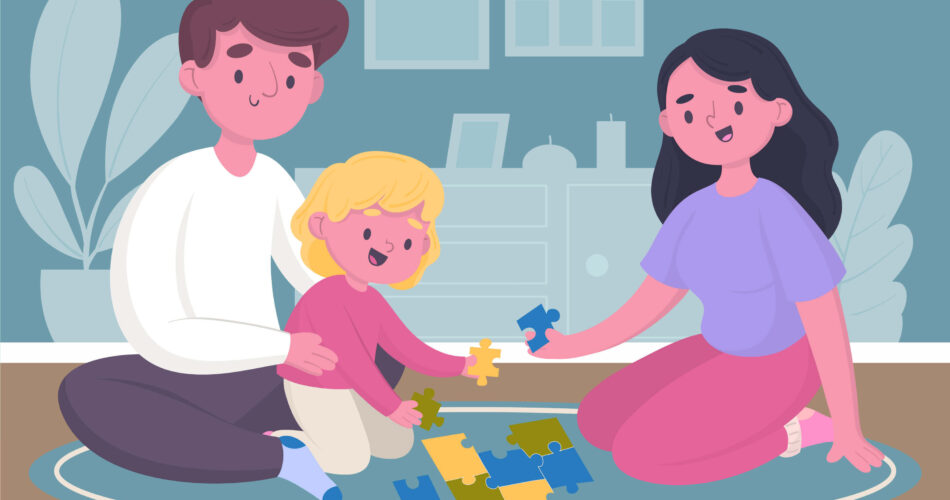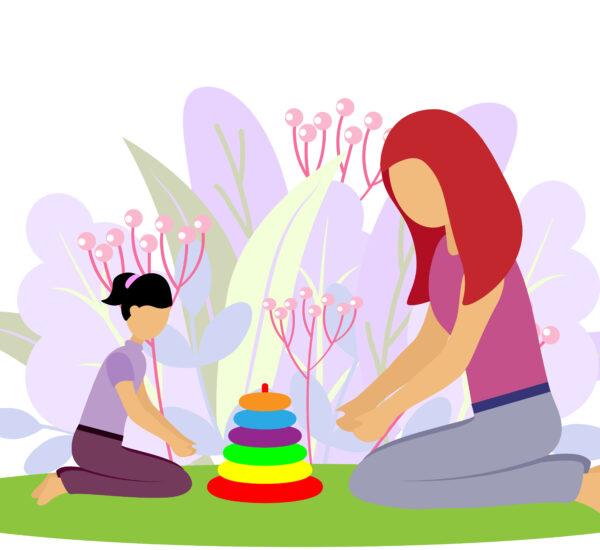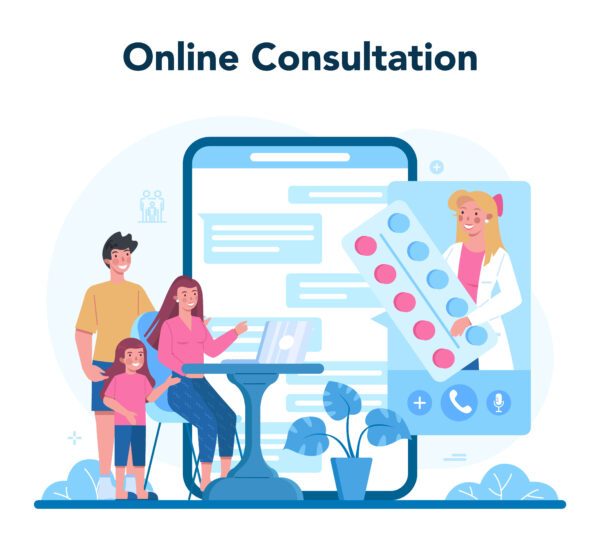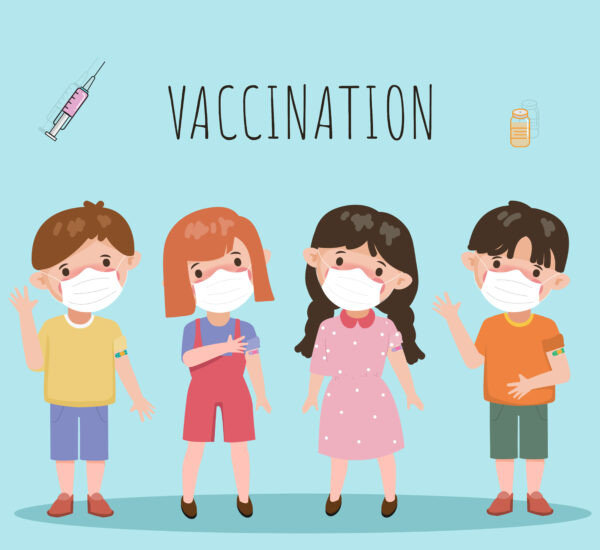As parents, witnessing your baby’s developmental milestones is both exciting and reassuring. From the first smile to the initial steps, every achievement feels like a moment to cherish. However, the fear of developmental challenges cannot be disregarded too. In that case, understanding early signs of autism in babies is equally important.
By identifying and recognizing the early signs, parents can seek timely support and intervention to help their child thrive. If that’s what you seek, you can rely on this guide. Find out the common signs of autism in every milestone of your baby, and what to do about them. Let’s begin!
What Is Autism Spectrum Disorder (ASD)?
Autism Spectrum Disorder (ASD) is a developmental condition that involves the brain. This can affect how a person communicates, behaves, and interacts with other people. It can be detected as early as months old, which means it can be managed immediately if proved to have it.
Parents often observe signs of autism in babies as early as six months, but symptoms may become more apparent between 12 to 24 months.
Earliest Signs of Autism in Infants or Babies by Developmental Milestone
0-6 Months: Early Signs to Watch For

While it can still be too early, you can already notice some symptoms of autism with your baby’s behavior, speech, and more. Autistic infants tend to show difficulty in language development and other aspects in development. Some babies also become too passive by not smiling or reacting to their surroundings. It’s best to monitor your baby daily to recognize early signs.
- Key signs:
- Limited eye contact or avoidance
- Lack of social smiles
- Minimal response to their name or familiar voices
- Rarely imitates facial expressions or movements
- Appears uninterested in social interactions
- When to take action: If your baby in this month of age seems unresponsive to social interactions or doesn’t engage visually, it might be a sign to consult a pediatrician.
6-12 Months: Increasing Awareness Needed
There’s a chance that early signs of autism in babies haven’t appeared yet in the early stages of your baby. However, if you still feel that there’s a delay in your baby’s development, you might need to increase your awareness further. Check out the possible signs that can appear during 6 to 12 months.
- Key signs:
- Delayed babbling or not making typical baby noises
- Lack of gestures like waving or pointing
- Infrequent or absent response to name
- Limited interest in playing interactive games like peek-a-boo
- Avoids eye contact
- When to take action: Babies typically start to express themselves with sounds and gestures by this age. If these are missing, consider a professional evaluation.
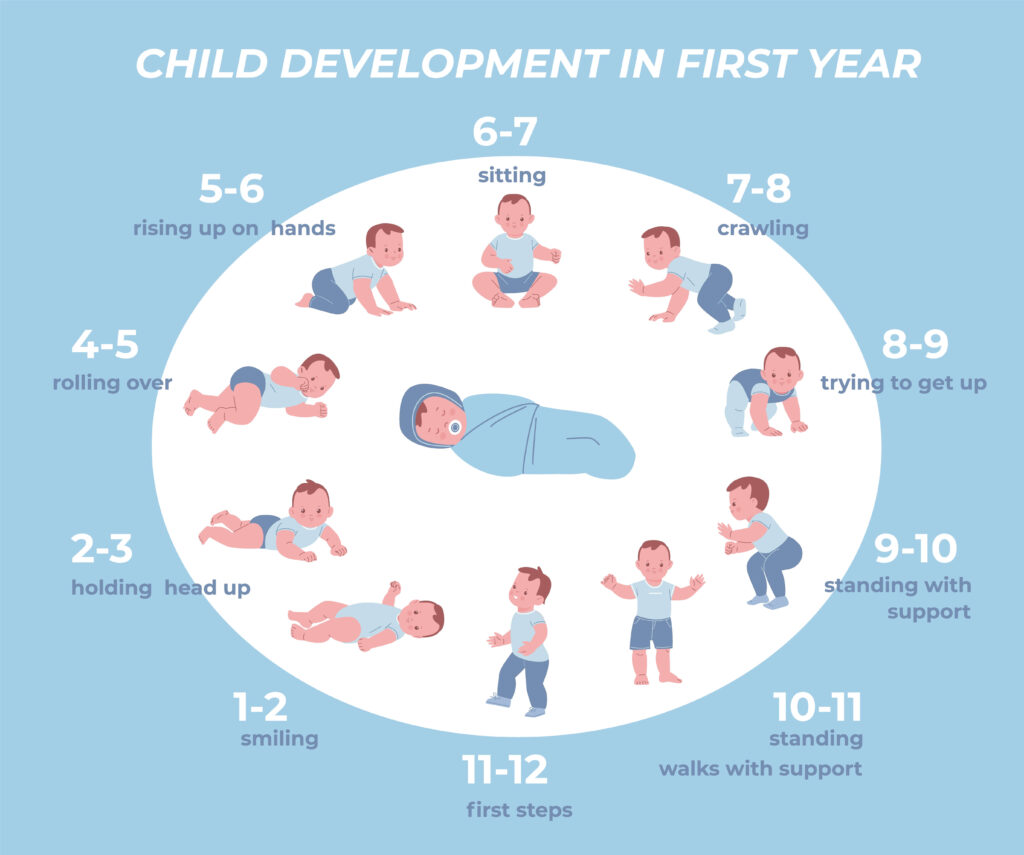
12-18 Months: Social and Communication Red Flags
During this stage, your baby must have developed their cognitive and communication skills, as well as their motor functions. At this age, there should be noticeable intellect such as building blocks. Furthermore, your baby must be able to walk on their own. In short, unlocking new skills and strengthening their old skills must be occurring in this level of development. Although, if the baby’s development is still amiss, you might want to check the following autistic symptoms below.
- Key signs:
- Not saying single words by 16 months
- Difficulty following simple instructions
- Limited interest in shared play or social engagement
- Repetitive behaviors like hand flapping or rocking
- Exhibits intense focus on specific objects
- When to take action: This stage is critical for social engagement and communication. Early signs of autism may include a lack of response to auditory cues.
18-24 Months: Behavioral and Developmental Concerns
Meanwhile, infants at this stage show a more developed cognitive, behavioral, communication, and motor skill. They can communicate better with at least 2 words, and commonly babbles. Additionally, babies can express their wants more, especially when playing. However, if you suspect further signs of developmental differences than what explained above, it can possibly mean there’s a setback.
- Key signs of setbacks:
- Does not speak two-word phrases by age 2
- Loss of previously acquired speech or social skills
- Repetitive use of language or movements
- Strong resistance to minor changes in routine
- Shows limited imaginative play
- When to take action: Toddlers should start to show interest in peers and engage in basic imaginative play. Any signs of withdrawal or repetitive actions warrant a discussion with a specialist.

24 Months and Beyond: Delayed Milestones
Once your baby lands at 2 yrs old, you should expect a more prominent development. However, if you notice some regression, it is a good idea to seek help from your child’s pediatrician. It’s a possibility that there’s a risk of autism due to the following conclusive evidence of autism disorder.
- Key signs:
- Delayed speech development
- Difficulty making friends or engaging with peers
- Preference for solitary activities
- Displays obsessive interests
- Struggles with sensory sensitivities
- When to take action: If your child is struggling with speech and comprehension, an assessment by a developmental-behavioral pediatrician may be beneficial.
When to Visit A Developmental-Behavioral Pediatrician
It’s natural for babies to develop at their own pace, but consistent delays in reaching developmental milestones may require professional evaluation. If you notice any of the signs mentioned above or have concerns about your baby’s development, it might be time to consult a developmental-behavioral pediatrician. This specialist can assess your child’s behavior, social interactions, and development through thorough evaluations and recommend appropriate interventions if needed.
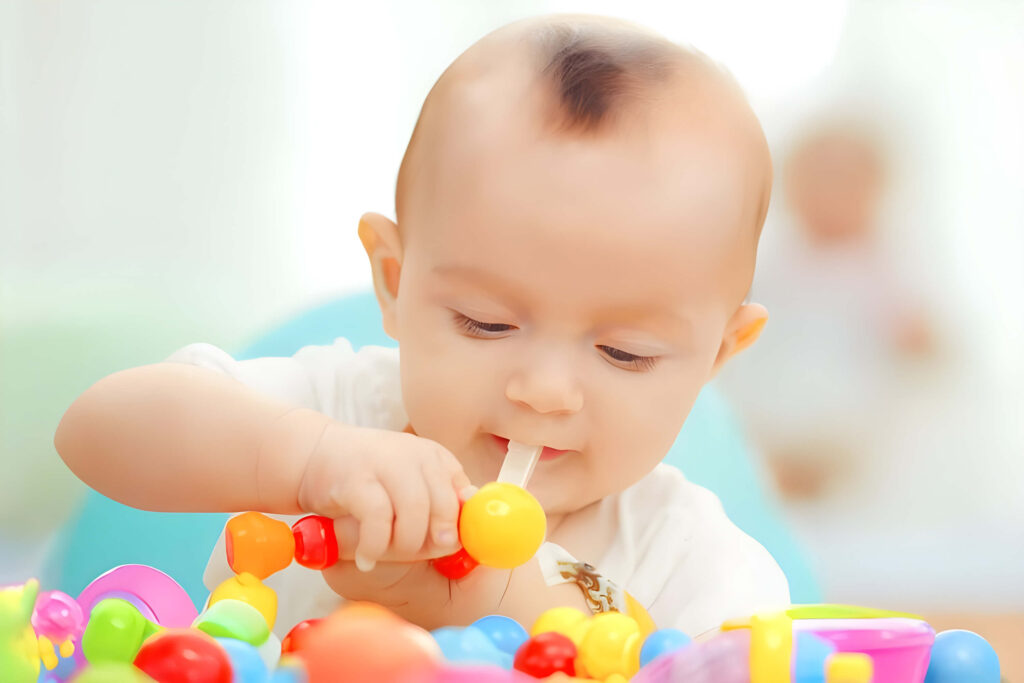
To reiterate the signs of autism in infants discussed above, a consultation is necessary especially if your child exhibits the following:
- Little to no response to their name by 12 months
- No single words by 16 months
- No meaningful two-word phrases by 24 months
- Any loss of speech, babbling, or social skills at any age
Autism Diagnosis in Babies Through Diagnostic Tests
When you visit a developmental-behavioral pediatrician, they may recommend several diagnostic tests and assessments for a proper diagnosis of autism. These may include:
- Developmental Screening: A brief assessment using questionnaires and checklists to identify developmental delays.
- Autism Diagnostic Observation Schedule (ADOS): A standardized assessment involving interaction-based tasks to evaluate social and communication skills.
- Autism Diagnostic Interview-Revised (ADI-R): A structured interview with parents to gather detailed information about the child’s behavior and development.
- Hearing Tests: To rule out hearing impairments as a cause of delayed speech or responsiveness.
- Genetic Testing: In some cases, doctors may recommend tests to check for genetic conditions associated with autism.
Early diagnosis can lead to more effective interventions, helping children develop essential skills and improving their quality of life.
How to Book A Developmental-Behavioral Pediatrician in the Philippines
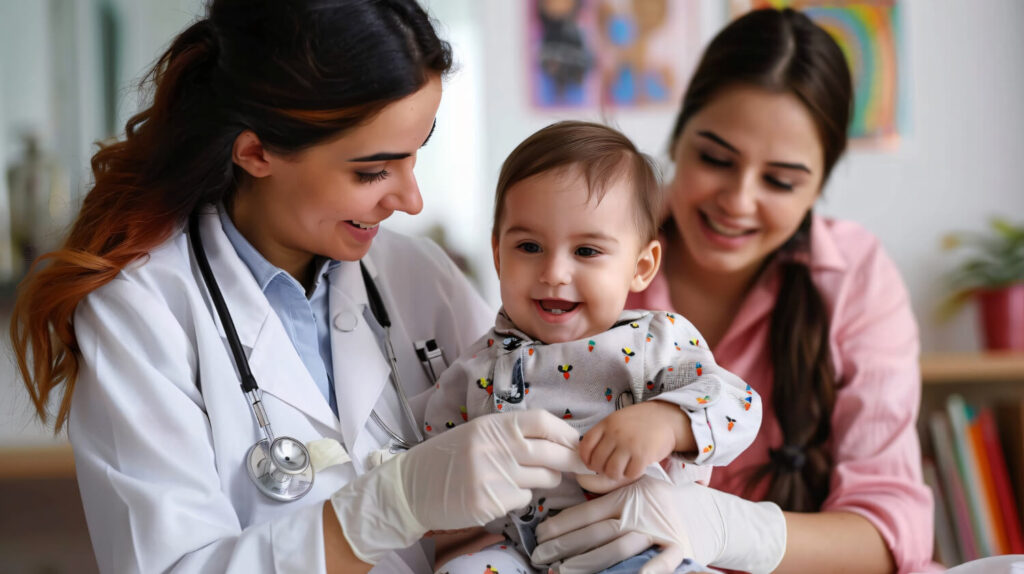
Finding healthcare professionals that can help monitor and manage your baby’s development can be tricky. However, with access to quality healthcare, you can easily track the best pediatrician as your child’s doctor.
NowServing is a healthcare platform that can be used using any device for a seamless connection with a licensed doctor. You can use it for both face-to-face and online consultation. Furthermore, you can buy your medications using the NS Pharmacy service, and if you need a diagnostic test, you can try the home test service. Lastly, getting a valid medical certificate is also possible by consulting with various licensed doctors on NowServing.
In that case, here’s how to book a Developmental-Behavioral Pediatrician on NowServing:
- Access this website link to view the list of developmental-behavioral pediatricians in the Philippines.
- Choose your preferred doctor by tapping the “Book Appointment” option.
- Fill the form with the necessary details.
- Wait for the confirmed booking of your consultation.
If you want to access NowServing on your phone, you can download the app using this link!
FAQs About Autism in Babies
What causes autism in babies?
Autism is believed to be influenced by genetic and environmental factors. There is no single known cause, but early diagnosis and intervention can help manage symptoms effectively.
Can autism be detected at 6 months?
While a formal diagnosis might not be possible this early, parents can observe potential signs like a lack of eye contact and limited social engagement.
When should I consult a pediatrician about autism concerns?
If your baby consistently shows signs of delayed development or exhibits behaviors that seem unusual for their age, it’s advisable to consult a developmental-behavioral pediatrician.
Are there any screening tools for autism in babies?
Yes, pediatricians often use tools like the Modified Checklist for Autism in Toddlers (M-CHAT) to assess developmental milestones and identify potential red flags.
How can early intervention help my baby?
Early intervention programs can significantly improve social, communication, and cognitive skills, providing a better developmental outcome for children with autism.
Conclusion
Recognizing the signs of autism in babies at each developmental milestone can empower parents to seek timely support and intervention. If you observe any concerning signs, consider consulting a developmental-behavioral pediatrician for a professional evaluation. Early detection and guidance can make a significant difference in your child’s development and well-being.
For personalized medical advice or to book an appointment with a developmental-behavioral pediatrician near you.
Signs of Autism in Babies Quiz
Test your knowledge about early autism signs
